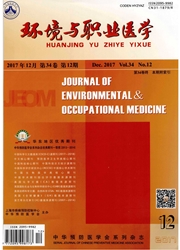

 中文摘要:
中文摘要:
[目的] 探讨磷脂肌醇3-激酶(PI3K)特异性抑制剂LY294002对胃癌细胞MGC-803的PI3K/丝-苏氨酸蛋白激酶(AKT)/哺乳动物雷帕霉素靶蛋白(mTOR)信号通路活性及细胞株生物学行为的影响。[方法] 12.5、25、50 μmol/L LY294002作用于胃癌细胞MGC-803(实验组),分别应用实时荧光定量PCR和Western blot检测PI3K/AKT/mTOR通路中关键信号分子PTEN、PI3K、AKT、mTOR、P70S6K、4EBP的mRNA和蛋白的表达情况;同时通过MTT实验、流式细胞术,测定LY294002对胃癌细胞MGC-803的增殖、细胞周期和凋亡的影响。[结果] 实验组的PI3K、PTEN、AKT、mTOR、4EBP、P70S6K基因的mRNA相对表达量与对照组(二甲基亚砜)相比,差异有统计学意义(P 〈 0.05),且AKT、mTOR、4EBP、P70S6K的表达量随着LY294002浓度升高而逐渐下降。LY294002对MGC-803细胞AKT、p-mTOR、p-70S6K、p-AKT蛋白的表达有明显抑制作用,且p-mTOR、p-70S6K、p-AKT蛋白的表达随着LY294002浓度升高而逐渐下降。MTT实验结果显示,LY294002对MGC-803细胞的增殖有明显的抑制作用,增殖率随LY294002浓度升高而逐渐降低(F=26.15,P 〈 0.01)。细胞周期实验结果显示,加入LY294002的MGC-803细胞相比于对照组细胞的G0/G1期比例较高(F=358.594,P 〈 0.001)。凋亡实验显示,LY294002组的凋亡率高于对照组且凋亡率随LY294002浓度增加而增加(F=4.929,P 〈 0.05)。[结论] LY294002作用于MGC-803细胞,可使其PI3K/AKT/mTOR信号通路关键信号分子受到不同程度的抑制,AKT、mTOR、4EBP、P70S6K基因的mRNA和磷酸化蛋白的表达量随LY294002浓度升高呈下降趋势,且LY294002可降低细胞增殖率、改变细胞周期比例、提高细胞凋亡率。
 英文摘要:
英文摘要:
[Objective] To investigate the effects of phosphoinositide 3-kinase (PI3K) inhibitor LY294002 on the activity of PI3K/protein kinase B (AKT)/mammalian target of rapamycin (mTOR) signaling pathway, as well as relevant biological behavioural alteration of gastric cancer MGC-803 cells.[Methods] Human gastric cancer MGC-803 cells were treated with LY294002 at 12.5, 25, and 50 μmol/L (experimental groups). The mRNA expressions of key signal molecules in PI3K/AKT/mTOR signaling pathway including PTEN, PI3K, AKT, mTOR, P70S6K, and 4EBP, as well as related protein expressions, were detected by quantitative real-time PCR and Western blot, respectively. The growth-inhibiting effects of LY294002 on MGC-803 cells were detected by MTT assay. The effects on cell cycle and cell apoptosis were detected by flow cytometry.[Results] Compared with the control (DMSO) group, LY294002 significantly regulated the mRNA expressions of PI3K, PTEN, AKT, mTOR, 4EBP, and P70S6K (P 〈 0.05), and the mRNA expression levels of AKT, mTOR, 4EBP, and P70S6K were declined with LY294002 concentration increasing. LY294002 significantly down-regulated the protein expression of AKT, p-mTOR, p-70S6K, and p-AKT, which showed a declining trend with LY294002 concentration increasing. The MTT assay results showed significant inhibiting effects of LY294002 on MGC-803 cells' proliferation as the proliferation rate increased with LY294002 concentration reducing (F=26.15, P 〈 0.01). The results of flow cytometry showed that the proportions of G0/G1 cells (F=358.594, P 〈 0.001) and the apoptosis rates (F=4.929, P 〈 0.05) of the LY294002 groups were higher than those of the control group in a dose-dependent manner.[Conclusion] LY294002 may inhibit the key signaling molecules of PI3K/AKT/mTOR signaling pathway in MGC-803 cells to varied degrees. The mRNA expressions of AKT, mTOR, 4EBP, and P70S6K and related phosphorylated proteins show a declining pattern with LY294002 concentration increasing. Besides, LY294002 could
 同期刊论文项目
同期刊论文项目
 同项目期刊论文
同项目期刊论文
 期刊信息
期刊信息
